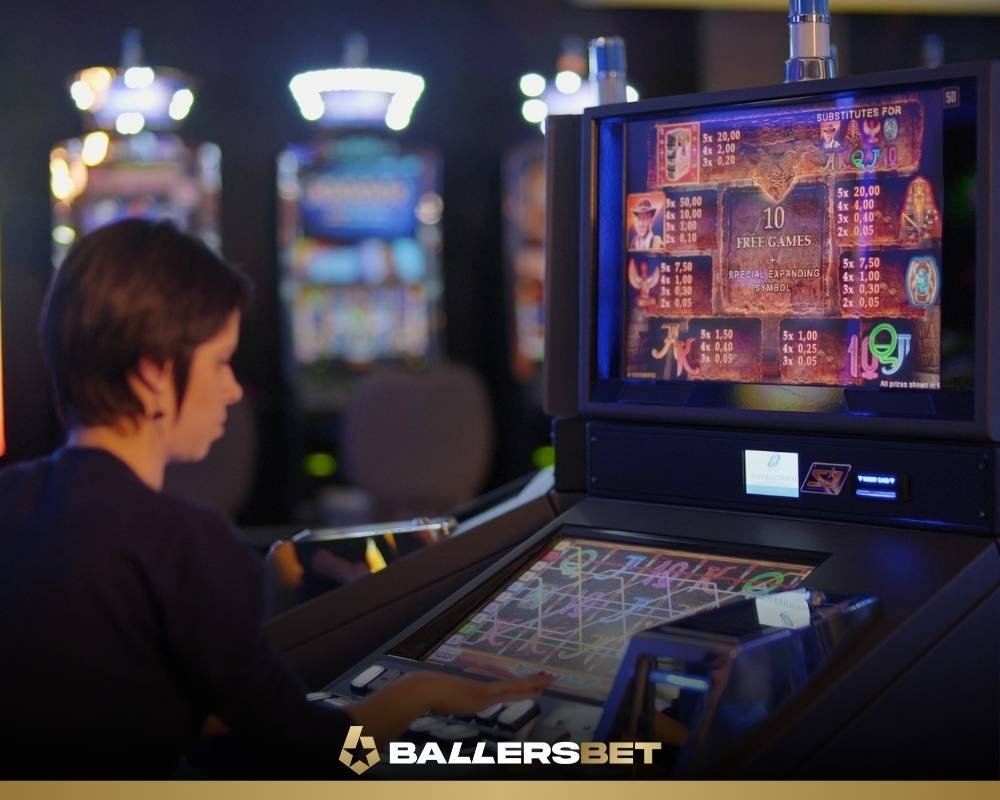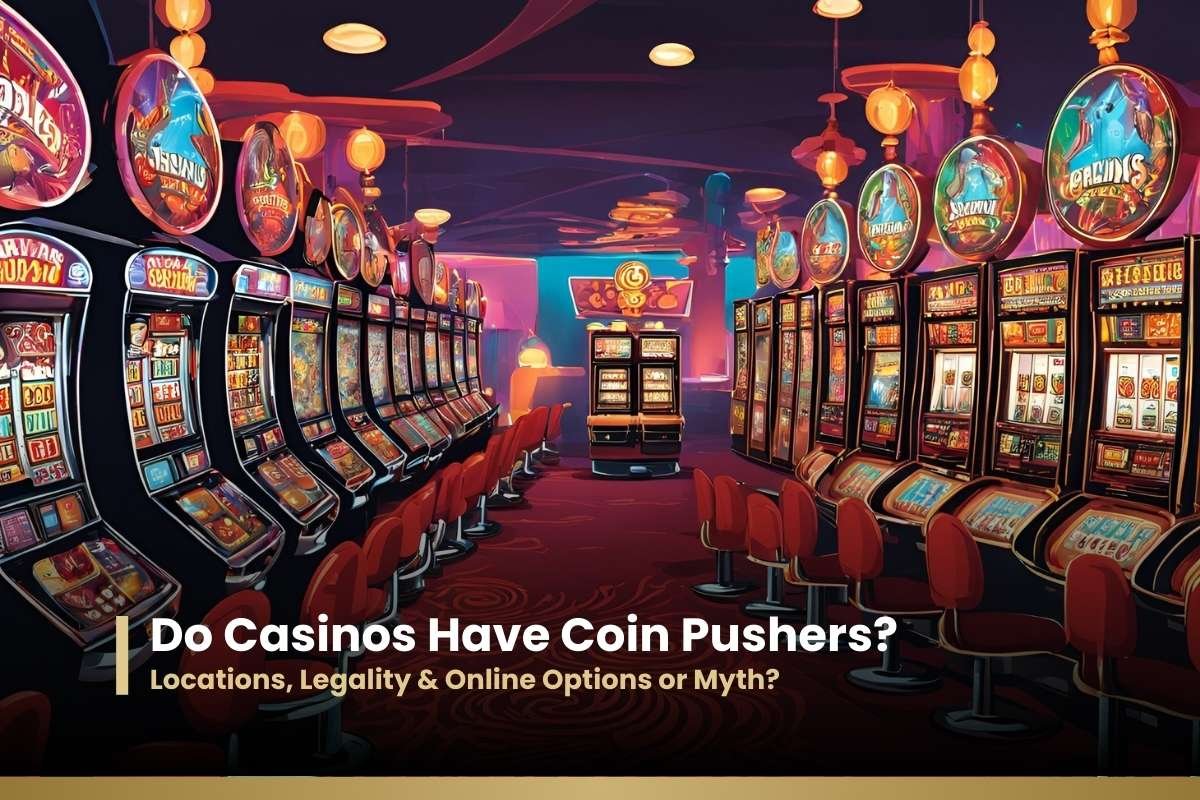Coin pusher machines—those captivating contraptions where coins stack, slide, and teeter on the edge of a ledge—are among the most recognisable arcade games in the world.
But their potential for reward has also made people wonder: do casinos offer coin pushers too? Are they legal? And can you play them online for real money?
This article unpacks everything you need to know about coin pushers in the gambling world—from where they exist and what laws govern them to how they’re evolving in digital form.
What Are Coin Pusher Machines?
A coin pusher is a type of mechanical amusement device that typically features three main parts:
- A coin slot where the player inserts coins.
- A moving platform that slides back and forth, pushing other coins toward the edge.
- A prize chute or tray where coins or prizes fall if successfully dislodged.
Players aim to time the coin drop perfectly so that it nudges the pile just enough to push other coins over the edge. While it appears simple and even skill-based, the mechanics and physical barriers built into these machines introduce a strong element of randomness.
These games are often mistaken as fair or beatable, but the vast majority are designed with precise engineering to favour the house—or in this case, the arcade or casino.
Read More: Can You Take Casino Chips Home & Cash Them Anywhere?
Do Casinos Have Coin Pushers?

Are Coin Pushers Found in Casinos?
Yes, But Rarely,While most commonly found in amusement arcades, coin pushers have made limited appearances in casinos, especially in the U.S., where their legality depends on state law. They are far from a staple of mainstream casinos and are not comparable to slot machines or roulette tables in terms of presence or profit potential.
Known Casinos Featuring Coin Pushers:
- Ilani Casino Resort – Located in Washington State, this casino has reportedly featured coin pusher-style games as part of its gaming floor.
- Four Winds Casinos – South Bend – Operated by the Pokagon Band of Potawatomi Indians, this location has been noted for including coin pushers under tribal gaming regulation.
These examples are exceptions, not the rule. Many other casinos exclude these machines entirely due to regulatory concerns and potential classification as illegal gambling devices.
Where Are Coin Pushers Most Common?
1. Amusement Arcades and Family Entertainment Centres
Coin pushers are most prevalent in venues not licensed for traditional gambling. In arcades across the U.S., UK, and Asia, they appear alongside claw machines, redemption games, and skee-ball. These machines often dispense tickets, tokens, or small toys, avoiding the gambling label by offering non-monetary rewards.
2. Seaside Resorts and Tourist Traps
In places like the British seaside (e.g., Blackpool or Brighton), coin pushers are a nostalgic staple. Here, they are often regulated under Category D gaming machine laws, which allow low-stake play for players of all ages.
3. Limited Tribal or Regional Casinos
Some Native American tribal casinos, operating under different gaming compacts, may include amusement-style or hybrid coin pusher machines as part of their broader gaming offerings.
Do Casinos Have High Limit Coin Pushers?
The idea of high-limit coin pushers—machines accepting large bets or offering high-stakes payouts—is more of a myth than reality.
Most coin pushers, even those in casinos, are designed for low-stakes entertainment.
They may allow slightly higher denominations (e.g., $1 tokens), but they do not compare to high-limit slot machines or VIP gaming tables.
The lack of transparency and payout predictability makes them unsuitable for high-stakes gamblers.
Learn More: Online Casino Safety 9 Tips: How to Gamble Securely
Legal Classification: Amusement Game or Gambling Device?
The Legal Grey Zone
The classification of a coin pusher largely determines where it can be installed and who can play it. Depending on the state, country, and jurisdiction, coin pushers may be considered:
1. Skill-Based Amusement Devices
- Typically found in arcades.
- Offer prizes or tokens.
- Legal for all ages.
2. Gambling Machines
- Offer monetary payouts or valuable prizes.
- Require a license to operate.
- Subject to gambling taxation.
- Often age-restricted (18+ or 21+ depending on region).
The defining factors often include whether the game is based on chance or skill, and what the player can win. Even the perception of gambling can lead regulators to reclassify a machine, especially if it attracts habitual adult players or mimics slot-style dynamics.
Example – U.S. State Laws:
- Florida: Has cracked down on coin pushers offering real-money rewards, classifying them as illegal gambling devices.
- Nevada: Heavily regulates casino offerings and rarely includes coin pushers.
- Texas: Allows coin pushers in certain counties only if they dispense non-cash items.
Licensing, Taxation, and Age Restrictions
Where coin pushers are treated as gambling devices, casinos must:
- Obtain specific licenses to host them.
- Pay taxes on revenue generated from the machines.
- Ensure compliance with minimum age requirements for players.
For instance, in the UK, a Category D coin pusher machine in an arcade doesn’t require age restrictions. However, if that machine were to pay out real cash in a UK casino, it would likely need to meet stricter gambling machine regulations, including adult-only access and monitoring.
Online Coin Pushers: Do They Exist?
Not in the Traditional Form.You won’t find mechanical coin pushers in online casinos, but several simulated versions exist. These games often mimic the look and feel of coin pushers but are typically:
- Mobile apps or browser games offering in-game currency or small virtual rewards.
- Crypto-based games where cryptocurrency is pushed instead of coins, although these operate in a legally grey or unregulated market.
Popular apps include:
- Coin Dozer
- Pusher Carnival
- Lucky Coin Pusher
These games are primarily for entertainment, and while some offer sweepstakes elements, few—if any—allow real-money withdrawals. Online gambling regulations generally favour digital card games, slots, and table games over physical simulations like coin pushers.
Know More: How Many Numbers Are on the Roulette Wheel?
The Coin Pusher Myth in Casino Culture
Why the Confusion?
Many players assume coin pushers are a casino standard due to:
- Their rewarding, slot-like mechanics.
- The visual appeal and sounds, reminiscent of real gambling machines.
- Viral videos showing players winning bundles of coins or cash in exotic or unregulated locations.
However, this image is often carefully curated or filmed in regions where laws are less stringent—or simply not enforced. In reality, coin pushers in casinos are rare and tightly controlled.
Frequently Asked Questions (FAQs) About Casino Coin Pushers
Q. Why don’t casinos have coin pushers if they’re so popular?
Casinos prioritize games with a structured house edge, ensuring long-term profitability. Coin pushers lack an RNG-based payout system, making them unpredictable and less profitable for casino operators. Additionally, many gambling commissions classify them as arcade or amusement games rather than legal gambling devices.
Q. Do coin pushers have a strategy, or is it pure luck?
Coin pushers involve a mix of luck and timing-based strategy. While dropping coins at the right moment can improve odds, consistent winnings are not guaranteed.
Unlike casino games such as blackjack or poker, coin pushers do not have clear mathematical strategies to reduce house edge.
Q. What is the biggest jackpot ever won on a coin pusher?
There are no official jackpot records for coin pushers since they are not part of regulated casino gaming. However, some high-limit coin pushers have awarded prizes worth thousands of dollars, including gold bars, stacks of cash, and rare collectable coins.
Q. Can you build your own coin pusher for gambling?
Yes, but legal restrictions apply. If a privately owned coin pusher pays out real money, it may be considered an illegal gambling device in many jurisdictions. However, personal or arcade-style versions (without cash payouts) are legal and commonly sold online.
Q. Are arcade-style coin pushers rigged?
While legitimate arcade coin pushers are not necessarily rigged, some machines have hidden mechanisms that:
– Adjust how coins fall to reduce payouts.
– Control prize release rates based on machine earnings.
– Require a large number of plays before releasing high-value rewards.
For fair play, always check machine settings and payout history before investing too much money.
Q. Are high-limit coin pushers a scam?
Not necessarily, but many YouTube videos and social media posts exaggerate winnings to attract views. Some privately owned high-limit machines operate under controlled conditions, meaning players may not always have a fair chance of winning.
Players risk losing money without legal recourse if a high-limit coin pusher does not follow gambling regulations.
Q. How do online coin pusher games make money if they don’t pay out real cash?
Many online coin pusher apps generate revenue through in-app purchases, ads, and premium features. Players often buy virtual coins, extra turns, or power-ups to continue playing, but these purchases rarely translate into real-world winnings.
Q. Can I play real-money coin pushers in Las Vegas?
No, Las Vegas casinos do not offer real-money coin pushers due to Nevada’s strict gambling laws. However, you may find arcade-style versions in non-casino locations like the Circus Circus Arcade.
Q. Are coin pushers illegal in the U.S.?
It depends on state regulations:
– Legal in some states if classified as an amusement game.
– Illegal in many states if real money is involved, as they are considered unregulated gambling devices.
For example, states like Nevada, Pennsylvania, and Florida have cracked down on illegal coin pushers, especially in small gambling halls and convenience stores.
Q. What should I watch out for in coin pusher scam apps?
Signs of a scam coin pusher app include:
Promises of high cash payouts with no proof of withdrawals.
Requires excessive in-app purchases to continue playing.
No clear terms and conditions regarding winnings.
Uses fake reviews or misleading advertisements.
Always research an app before spending money and check user reviews for payout complaints.
Would you play a real-money coin pusher if it were legal in casinos? Let us know your thoughts! 🎰💰
Final Verdict: Are Coin Pushers in Casinos Real or a Myth?
Yes, coin pushers can exist in casinos—but only under specific legal and regulatory conditions. They are not common features in large-scale or mainstream gaming resorts and are more typically found in arcades or select tribal casinos.Their appeal lies in nostalgia and visual excitement, but they remain low-skill, high-variance games with unclear or limited payout potential.
Note: Ballersbet is a betting platform for users 18+. Betting carries financial risk, so please gamble responsibly and make informed choices.

I’m a Michele, Casino Analyst and Reviewer at Ballersbet.com, where I specialize in providing honest insights and expert reviews of the latest casino games and platforms. With a passion for online gaming and a commitment to transparency, I strive to help players make informed decisions in the ever-evolving world of online casinos.






